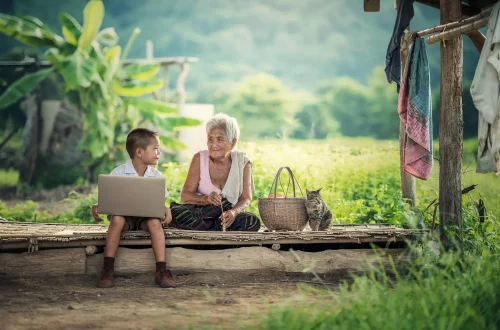
What Do Elves Eat? Exploring the Magical Diet of Elven Beings
Elves have long captivated the human imagination, appearing in folklore, mythology, and contemporary fantasy. These ethereal beings are often depicted as guardians of nature, skilled in magic, and possessing an innate connection to the world around them. Their portrayal varies widely, ranging from mischievous tricksters to wise sages. Yet, one aspect that remains consistent across cultures is their enigmatic diet, which often reflects their unique relationship with the environment.
The diet of elves is not merely a matter of sustenance; it serves as a window into their values, lifestyle, and the ecosystems they inhabit. While humans often focus on the nutritional aspects of their food, elves seem to prioritize harmony with nature, sustainability, and the magical properties of what they consume. This raises intriguing questions about the ingredients that make up an elven meal and the rituals surrounding their dining experiences.
By delving into the magical diet of these mythical beings, we can gain insights into their worldviews and cultural practices. What do elves truly eat? How do their food choices reflect their beliefs and the environment they cherish? Exploring these questions will not only enhance our understanding of elves but also inspire us to consider our own dietary choices in a more thoughtful and holistic manner.
Nature’s Bounty: The Elven Connection to the Earth
At the heart of elven cuisine is a profound respect for nature. Elves are often depicted as living in harmony with their surroundings, and this symbiosis is evident in their dietary choices. Unlike humans, who might exploit natural resources, elves are portrayed as stewards of the earth, taking only what they need and ensuring that the ecosystems they inhabit remain undisturbed.
Elven diets typically consist of a diverse array of fruits, vegetables, nuts, and herbs. Wild berries, mushrooms, and edible flowers are staples in their meals, as these ingredients are often found in abundance in their lush, magical forests. Elves believe that food sourced directly from nature is imbued with magical properties that enhance their physical and mental well-being.
For instance, certain herbs are thought to have healing qualities, while others might offer boosts to magical abilities. The careful selection of these ingredients reflects an elven understanding of the interconnectedness of all living things. They do not merely consume food for sustenance; they engage in a ritualistic process that honors the plants and animals that provide for them.
Moreover, the preparation of elven meals is often a communal affair, fostering a sense of community and togetherness. Elves gather to share recipes passed down through generations, each dish telling a story of their ancestry and connection to the land. This aspect of their cuisine highlights the importance of tradition, memory, and cultural identity in their lives.
The Role of Magic in Elven Cuisine
Magic plays a critical role in the culinary practices of elves, elevating their meals beyond mere nourishment. For elves, food is not only a source of energy; it is a conduit for magic. Many elven dishes are said to possess inherent magical properties, which can enhance physical abilities or even bestow temporary magical powers upon those who consume them.
One of the most well-known examples of this is the use of moonlight in elven cooking. It is believed that food prepared under the light of a full moon carries special enchantments, and elves often gather during these nights to create feasts that celebrate the lunar cycle. These meals might include moonberries, a fictional fruit said to glow softly in the dark, or star-dusted pastries that shimmer with celestial energy.
Elven chefs are often regarded as skilled artisans, weaving magic into their culinary creations. They might use spells to enhance flavors, preserve ingredients, or create illusions that make their meals visually stunning. This fusion of magic and cuisine offers a glimpse into the elven philosophy that values creativity, artistry, and the transcendental nature of food.
Furthermore, elven celebrations often center around grand feasts, where the act of sharing food becomes a ritual of unity and joy. These gatherings are marked by storytelling, music, and dance, creating an atmosphere where the boundaries between the physical and the magical blur. In this way, food becomes a means of connection—not only among elves but also with the wider universe.
The Influence of Culture on Elven Diets
The dietary habits of elves are not monolithic; they vary significantly depending on cultural and geographical contexts. Different elven clans or communities may have their own unique culinary traditions influenced by the specific resources available in their environment. For example, forest-dwelling elves might rely heavily on foraged goods, while coastal elves could have a diet rich in seafood.
Each culture brings its own flavors, preparations, and rituals to the table. In some elven societies, the consumption of certain foods might be reserved for special occasions, reflecting their sacred significance. In others, specific ingredients might be used in everyday meals, symbolizing their connection to the land and its bounty.
These cultural nuances also extend to the preparation methods employed by elves. While some may prefer to eat raw or lightly cooked foods to preserve their natural flavors and nutritional value, others might engage in elaborate cooking techniques that highlight their culinary artistry. Fermentation, drying, and smoking are just a few methods that might be employed, each adding a distinct character to the food.
Moreover, the spiritual beliefs of different elven cultures can influence what they choose to eat. Some may adhere to strict dietary laws that honor the spirits of nature, while others might embrace a more flexible approach, focusing on the seasonality and availability of ingredients. This diversity enriches the tapestry of elven culinary practices, illustrating the deep-rooted connections between food, culture, and identity.
Elven Beverages: A Magical Elixir
Alongside their enchanting meals, elves are known for their exquisite beverages, which often complement their culinary creations. Elven drinks are typically crafted from natural ingredients, showcasing the same reverence for nature that defines their food. Herbal teas, fruit juices, and fermented drinks like mead are common staples in elven households.
One particularly magical beverage is elven wine, often made from grapes cultivated in enchanted vineyards. This wine is said to have restorative properties, promoting longevity and vitality among those who drink it. Elven winemakers are regarded as masters of their craft, employing ancient techniques that harness the essence of the land and the magic within it.
Teas made from various herbs, such as chamomile or mint, are also popular among elves for their soothing and calming effects. These beverages are often consumed during social gatherings or quiet moments of reflection, serving as a way to connect with nature and oneself. The act of brewing tea becomes a ritual, allowing elves to slow down and appreciate the simple pleasures of life.
In addition to their inherent qualities, elven beverages are often aesthetically pleasing, served in beautifully crafted vessels that reflect the artistry and craftsmanship of elven culture. The presentation of drinks is considered just as important as the taste, further emphasizing the importance of beauty in elven life.
Through these beverages, elves continue to express their connection to the natural world, celebrating the gifts it provides. The act of sharing drinks becomes another opportunity for bonding, storytelling, and the exchange of wisdom, reinforcing the communal values that underpin elven society.
In conclusion, the magical diet of elves is a rich tapestry woven from their profound connection to nature, cultural diversity, and the interplay of magic and culinary artistry. Their food and beverages reflect not only their values and beliefs but also their commitment to preserving the delicate balance of the ecosystems they inhabit. By exploring the enchanting world of elven cuisine, we gain insights into their unique lifestyles, inviting us to reflect on our own dietary choices and their impact on the world around us.
This article is meant for informational purposes only and should not be considered medical advice. Always consult with a healthcare professional for any health-related concerns.




